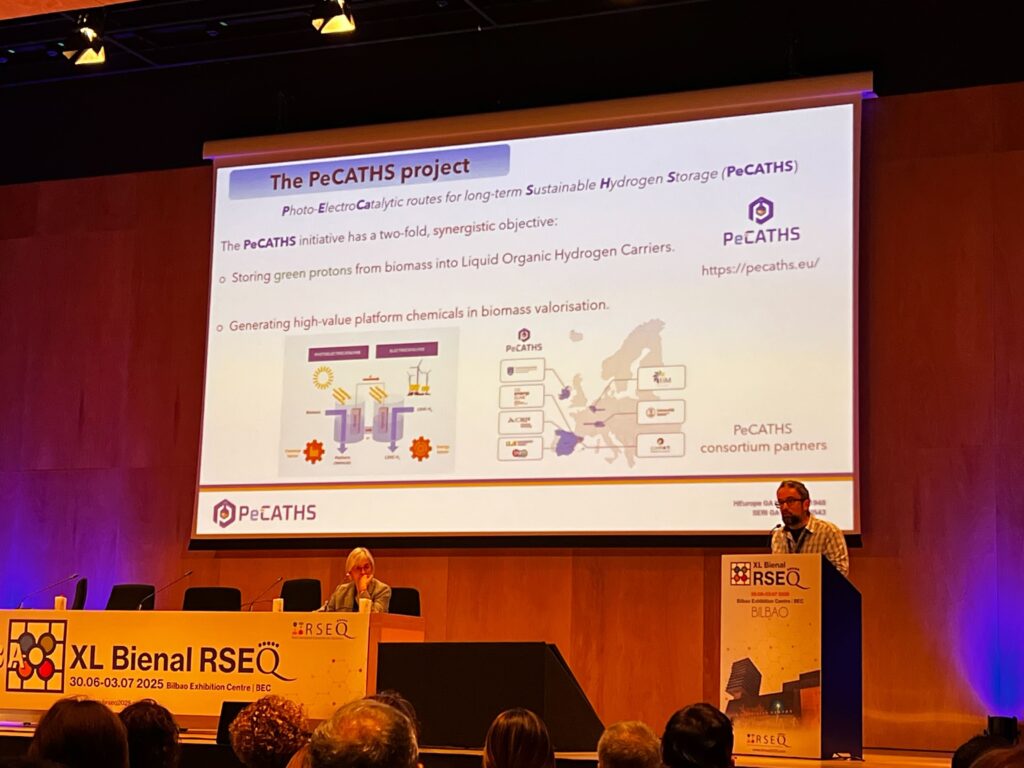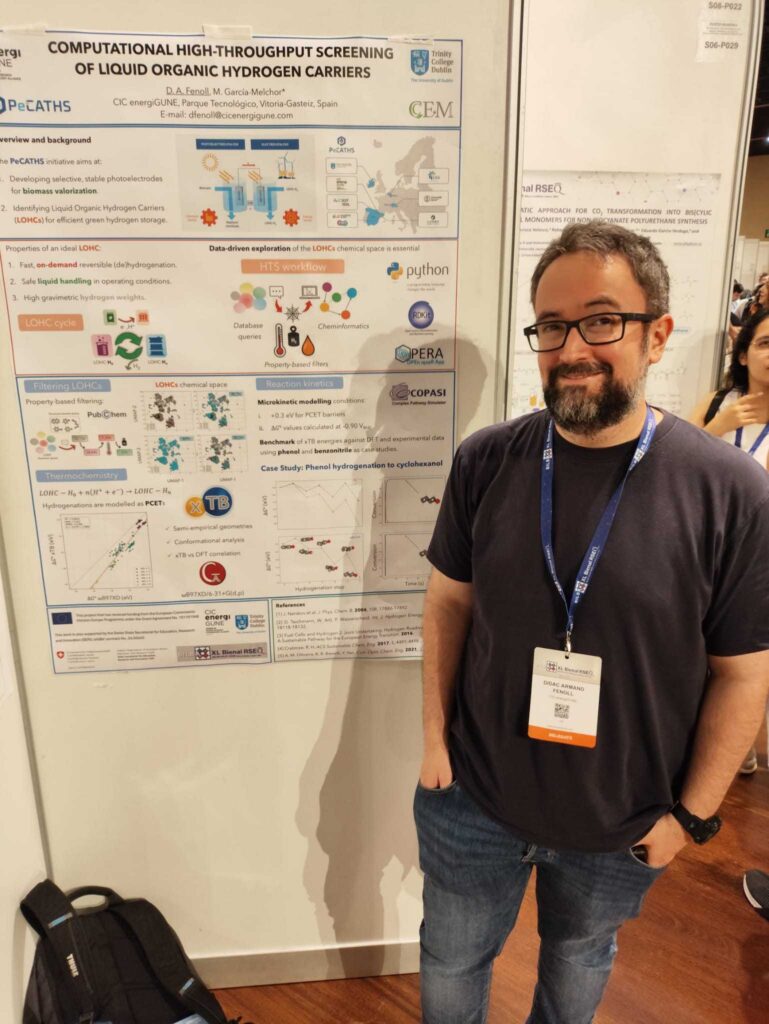From the 30th of June to the 3rd of July, PeCATHS researchers have presented the latest updates on a high-throughput screening platform for liquid organic hydrogen carriers at the ”XL Reunión Bienal”, organized by the Spanish Royal Society of Chemistry (RSEQ) in Bilbao (Spain). As a national and international network hub, this year’s “Reunión Bienal” provided an excellent opportunity to disseminate the PeCATHS initiative and perspectives.

Two contributions pertaining to the PeCATHS initiative were presented by Dr. Didac Armand Fenoll and Ikerbasque Prof. Dr. Max García-Melchor, from CIC energiGUNE (Parque Tecnológico, Vitoria-Gasteiz, Spain). Firstly, an Oral Communication entitled “High-throughput screening of LOHCs for Sustainable Hydrogen Storage” was presented in front of a wide audience of prestigious national and international researchers as part of the Green Chemistry symposium. The work therein presented involved the detailed discussion of the LOHC filtering stages and computational methods employed in the mechanistic elucidation of the reversible (de)hydrogenation of LOHCs. In the Communication, the data-driven discovery platform for LOHCs was presented, clearly illustrating the rationale underlying the proposed computational workflow through selected examples of LOHC classification algorithms and combined thermodynamic-kinetic simulations. Secondly, a poster entitled “Computational high-throughput screening of liquid organic hydrogen carriers” containing additional details on the PeCATHS initiative and the LOHC discovery platform was exhibited. Significantly, the benefits of machine learning algorithms in driving the exploration of LOHC chemical space, as well as the need for suitable LOHC activity descriptors, was made abundantly clear.

The current edition of the “Reunión Bienal” was divided into 16 symposia taking place in 5 parallel sessions across three days, in which state-of-the-art advances in Chemistry were presented by national and international researchers. There were over 1,200 participants, 8 plenary lectures, 100 invited conferences and 200 Oral Communications. Dissemination was accompanied by fruitful discussions with colleagues with converging interests in green chemistry, photoelectrocatalytic materials, light and electron-powered sustainable chemistry, and data-assisted screening of new materials. The PeCATHS contributions garnered significant interest, both regarding the development efforts of Work Package 3 (a joint venture between CIC energiGUNE and Trinity College Dublin) and the promising outlook of the PeCATHS consortium.